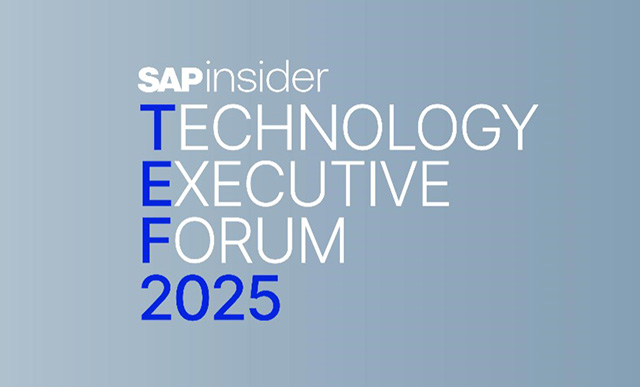Thomson Reuters Announces New $150 Million Venture Capital Fund to Drive Innovation
Meet the Authors
Thomson Reuters announced it has launched a second Corporate Venture Capital Fund, valued at $150 million. The second fund operating under Thomson Reuters Ventures, Fund 2 will focus on early-stage technology companies in key industries, including Legal Technology, Tax & Accounting, Fintech, Risk Fraud & Compliance, and News & Media.
This initiative follows the company’s 2021 fund, which also aimed to foster innovation and deliver value to customers. The company said in a press release that it wants to invest in firms that are shaping the future of professional work, aligning emerging technologies with its mission to provide customers with solutions that enable informed decision-making and efficient workflows.
Doubling Down on Innovation
Fund 2 will primarily target Series A investments but will also have the flexibility to explore other opportunities. The company says it will continue to approach investments with financial discipline, prioritizing companies that address critical challenges faced by professionals today. A significant focus will be on the transformative potential of Generative AI (Gen AI), as Thomson Reuters aims to find solutions that enhance productivity, automate tasks, and improve decision-making.
Explore related questions
“Thomson Reuters Ventures is a pivotal component of the company’s ‘Build, Partner, Buy’ strategy. Fund 2 underscores our commitment to maintaining a leadership position by investing in innovative companies that align with our strategic focus,” said Tamara Steffens, Managing Director, Thomson Reuters Ventures. “Through this larger fund, we’re expanding our ability to identify and support companies at the forefront of change.”
Pushing Technology Forward with Targeted Investments
Thomson Reuters Ventures has already demonstrated success with its first fund, having made 23 investments in emerging technology firms. One notable example is Materia, an agentic AI company that was later acquired by Thomson Reuters to enhance its artificial intelligence capabilities for tax, audit, and accounting professionals. This acquisition underscores the company’s commitment to leveraging AI and other advanced technologies to improve its product offerings.
Infusing artificial intelligence (AI) into tax processes is critical in transforming a traditionally manual, time-consuming, and error-prone domain into a dynamic, efficient, and precise system. Thomson Reuters has clearly seen the need for enhanced efficiency and innovation in the tax space, and its VC funds are designed to elicit these advancements from promising organizations.
Strategic Focus Areas
SAPinsider has learned through its research that organizations are constantly seeking to automate of repetitive tasks. AI systems can handle data entry, document processing, and calculations, thereby reducing human error and freeing professionals to concentrate on complex issues, strategic planning, and interpretation of results. This automation not only increases efficiency but also contributes to significant cost savings.
Tax and finance teams are also under significant pressure to deliver accurate, actionable, and real-time insights to decision-makers within the organization. AI facilitates real-time data analysis and predictive insights. By processing large volumes of financial data quickly, AI tools can identify discrepancies, flag unusual transactions, and ensure proper application of deductions and credits. This capability leads to more accurate tax filings, minimizing risks associated with audits and penalties. With AI’s ability to learn and adapt, organizations can stay ahead of regulatory changes, ensuring ongoing compliance as tax laws evolve.
Another important advantage is enhanced fraud detection. Machine learning algorithms are adept at recognizing patterns and anomalies that may indicate fraudulent activities, enabling early intervention and safeguarding both taxpayer and governmental interests. Additionally, AI supports better decision-making by offering deeper insights into tax trends, thereby helping organizations forecast liabilities and optimize financial strategies.
Additionally, incorporating AI into tax processes builds a foundation for transparency and accountability. It enables continuous monitoring of compliance and reduces the dependency on manual checks, leading to a more robust and trustworthy system. Infusing AI into tax processes not only streamlines operations and improves accuracy but also strengthens fraud detection, ensures regulatory compliance, and empowers data-driven decision-making, marking a transformative step forward in modern tax management that Thomson Reuters is pushing to accomplish.
“Our investment strategy goes beyond financial returns. We’re committed to fostering innovation guided by the needs of our customers and the broader professional markets we serve. By collaborating with visionary founders, we can help scale transformative solutions while reinforcing our leadership in professional technology,” said Stephens.
What This Means for SAPinsiders
AI is a key area of focus and investment to drive innovation. As this new fund demonstrates, AI is going to elicit significant investment both now and likely well into the future. Though we do not know how the $150 million Thomson Reuters is going to invest will be divvied up, the company’s stated mission to “bring its customers products that empower informed decisions and efficient workflows” clearly signals that innovative solutions like AI will be in focus.
Ensure all areas of your organization are prepared to leverage AI tools. Though AI has shown significant promise, SAPinsider’s recent AI and Automation in Finance report found that just 25% of organizations plan to use AI into their tax processes over the next three years. This figure is no doubt in flux, as more and more organizations see how the major tax technology players in the SAP space are infusing AI into their workflows. The Big Four accounting firms are actively incorporating AI in their tax services to automate routine tasks, enhance data analytics, and improve decision-making. Their digital tax solutions leverage machine learning to detect anomalies and streamline compliance. Other major solutions providers in this space like Sovos, Avalara, and Vertex offer AI-driven platforms to transform traditional tax functions, focusing on real-time data processing and predictive analytics to ensure accurate tax reporting and compliance. Organizations must be prepared to accommodate the new AI capabilities by ensuring that their data is ready to be utilized by AI tools.
Collaboration and Innovation go hand in hand. Companies with ambition goals may not always have the resources to get where they want to go. With significant VC backing from organizations like Thomson Reuters, AI startups are more likely to bring their products to market quickly. This influx of capital reduces the time between research breakthroughs and real-world applications. This infusion helps scalability and market reach, which motivates companies to form strategic partnerships across different sectors and geographies. This interconnectedness promotes knowledge sharing and interdisciplinary collaboration, further driving the advancement of AI technologies. Thomson Reuters says it will continue to prioritize innovation in a way that drives important financial workflows forward, improving trust, reducing manual strain, and fostering intelligent collaboration.









